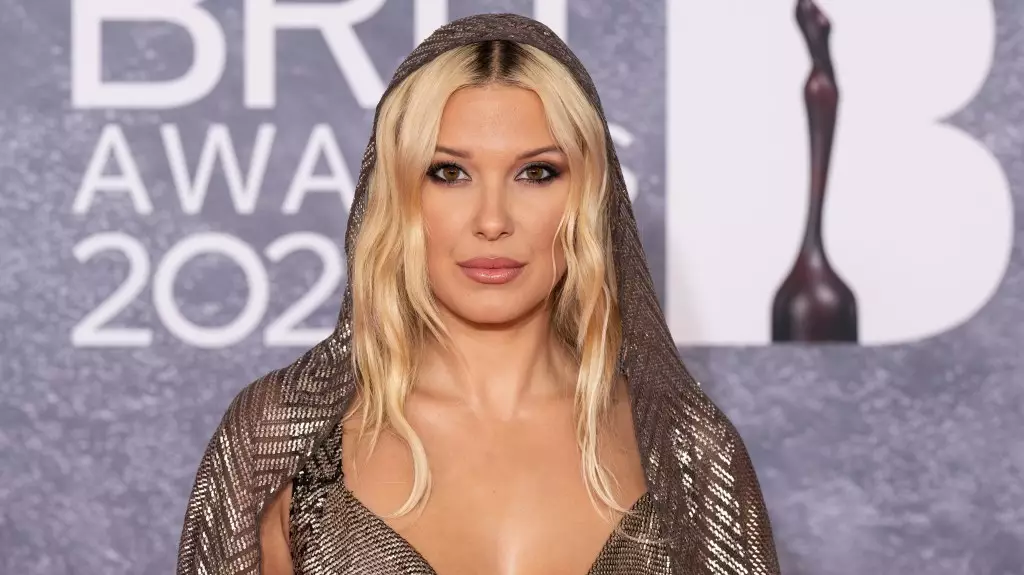Millie Bobby Brown’s recent address on social media is a necessary wake-up call regarding how we, as a society, treat young women in the public eye. The 18-year-old actress, known for her breakout role in Netflix’s “Stranger Things,” has become a target for relentless media scrutiny, making her experience a mirror reflecting our cultural obsession with young female celebrities. By dissecting her looks and linking them to her age, media outlets have chosen to amplify societal pressures that often result in emotional harm rather than constructive dialogue.
While Millie’s defiance against the derisive headlines should encourage a more positive discourse, it’s alarming to realize how young women are often portrayed as mere objects of critique rather than as whole individuals with the right to evolve naturally over time. The cruel irony is that the very agency society urges young women to possess—embracing their identity—becomes a hotbed for condescension when they step into adulthood. It’s almost laughable—not in the humorous sense, but in a somber realization—that adult writers can’t seem to adapt to the reality of Millie’s evolution.
Layered Criticism: The Conflict Between Empowerment and Judgement
Millie’s emotional plea shines a light on the troubling tendency of media narratives that distort the trajectory of a young woman transitioning into adulthood. It’s disturbing to read comments questioning her looks or implying she has undergone “work” to alter her appearance simply because she doesn’t look like her teenage self. Such scrutiny is not merely an observation but a deeply insidious form of bullying disguised as commentary.
The outrage amplifies when we recognize that much of this criticism comes from within women’s circles—those who are supposedly allies in the fight for equitable representation and empowerment. The loudest voices tearing Millie down can be conveniently categorized as women who have survived similar scrutiny yet opt to perpetuate the cycle, engaging in the same toxic behavior they once endured. Have we, as advocates for women’s rights, become so desensitized to the issue that our solidarity has devolved into a twisted form of competition for clicks and validation?
The ease with which society condemns the evolution of young women raises a question: What does this say about our cultural values? Millie’s assertions reflect a general discontent with how society grapples with femininity, age, and appearance. For many young women, the ramifications of public exposure can be damaging, affecting their self-esteem and personal growth in devastating ways.
Brown’s situation is a glaring example of a cultural double standard: when young men age or grow into their looks, they often receive accolades, while young women face harsh judgments and vitriol. Every remark questioning her “naturalness” or “authenticity” reverberates beyond Millie; it reinforces a societal narrative that young women are not just expected to conform to unrealistic standards of beauty, but are also subjected to harsh criticism when they dare to embrace their evolving selves. How can we expect the younger generation to flourish in a landscape littered with negativity, especially when the guardians of this landscape—media and society—provide no respite?
Millie Bobby Brown has not just spoken for herself; she embodies a larger narrative representing countless young women who are navigating a rocky pathway under the unforgiving glare of public scrutiny. The onus is on all of us—consumers, writers, and industry professionals—to recalibrate our perceptions and expectations. It is time we shed the impulse to critique and begin to foster an environment where young women feel free to exist, grow, and thrive.
As a society, we must make a conscious choice: will we continue the route of relentless critique that breeds insecurity and discontent, or will we pivot toward encouragement and support? Every shared moment of kindness can gradually reshape our cultural narrative, allowing us to build a community that celebrates individuality rather than tearing it down. Millie’s clarion call should serve as motivation for us all to champion the growth of young women—not just for their sake, but for our collective betterment.


Leave a Reply